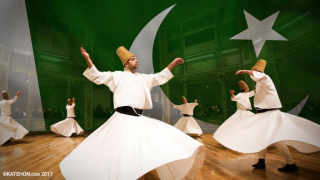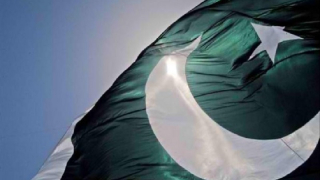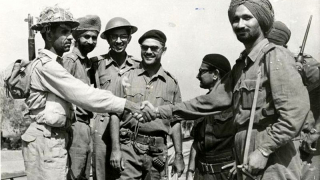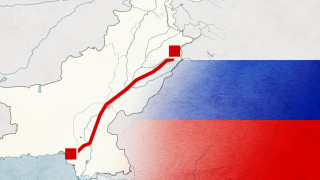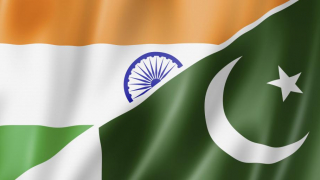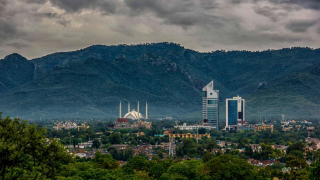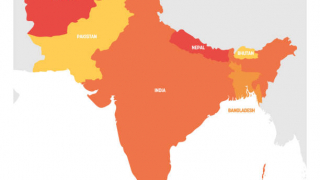A Complex Tapestry - The Role of Pashtuns in Pakistan’s State and Society
The Pashtuns, one of Pakistan's most prominent ethnic groups, have long held a vital role in the country’s state institutions and national identity. From politics and the military to sports and international advocacy, Pashtuns have made significant contributions to the fabric of the nation. Representing around 15% of Pakistan's population, their influence transcends mere numbers, manifesting in key leadership roles across multiple sectors.
Notable figures like Ghulam Ishaq Khan, Pakistan’s former President, and General Waheed Kakar, who played a pivotal role in maintaining the stability of Pakistan's democracy during his tenure as Army Chief, exemplify Pashtun prominence in state institutions. The Pashtun legacy is not confined to politics or the military; it extends to culture and sports as well. Cricket legends such as Younis Khan and Shahid Afridi, as well as squash champions Jahangir Khan and Jansher Khan, have all become household names, bringing global recognition to Pakistan. Furthermore, Malala Yousafzai, a Nobel laureate and education activist, has become an emblem of courage and advocacy for education, especially for girls, in regions vulnerable to extremism.
While Khyber Pakhtunkhwa (KP) is the traditional heartland of Pashtuns, their presence is deeply interwoven into the broader fabric of Pakistan. Pashtuns have a significant and vibrant community in Karachi, the country’s economic hub, and they play an integral role in the city's labor force, business sector, and civil society. Their widespread presence across Pakistan adds to their importance in the nation’s sociopolitical landscape.
However, Pashtuns, particularly those in KP, face unique challenges due to their geographic proximity to Afghanistan. KP's porous border with Afghanistan makes the region particularly susceptible to instability, terrorism, and insurgencies, especially from extremist factions such as the Tehreek-e-Taliban Pakistan (TTP) and other militant groups often categorized as "Fitna al-Khawarij" — a term denoting dissident groups that threaten Islamic unity. The state's law enforcement agencies (LEAs) are engaged in a continuous battle to root out these extremist elements, with significant resources devoted to maintaining peace and security in the region.
The government of Pakistan, aware of KP's strategic importance and the challenges it faces, has launched several developmental projects aimed at improving the socio-economic conditions in the region. The state is particularly committed to uplifting the Newly Merged Districts (NMDs), formerly known as the Federally Administered Tribal Areas (FATA), where efforts to integrate these districts into the national fold are ongoing.
Among the flagship infrastructure projects is the Gomal Zam Dam, a mega project designed to transform the barren landscape of southern KP. Upon completion, it is expected to irrigate 190,000 acres of land while also generating 17.4 MW of electricity. Projects like these symbolize the state's determination to provide long-term economic benefits to the region, fostering prosperity and reducing the appeal of extremist narratives that thrive in conditions of deprivation.
Despite these efforts, there remains a significant internal challenge: the Pashtun Tahafuz Movement (PTM). The PTM emerged as a political force advocating for Pashtun rights and raising concerns about the impact of military operations and governance in KP. However, the state views the PTM’s agenda as undermining national unity, accusing it of politicizing Pashtun issues for its own gain.
Many within the government argue that the PTM spreads misinformation that harms not just the image of the state but also Pashtun interests themselves. They assert that by stoking resentment and dissatisfaction, the PTM inadvertently aids extremist groups like those aligned with the "Fitna al-Khawarij," which only serves to prolong instability in the region. The state claims that the PTM’s actions obstruct peace-building efforts and development initiatives, weakening the very causes they profess to champion.
The Pashtun community stands at a crossroads. While their contributions to Pakistan's success and identity are undeniable, internal and external challenges persist. The state remains committed to addressing the legitimate concerns of Pashtuns through development and integration, yet it is equally resolute in its stance against any movements that could destabilize the region or undermine its counter-terrorism efforts.
Pakistan’s future, and that of its Pashtun population, depends on a delicate balance—one where development, security, and representation are pursued in harmony. If these forces can work together, there is potential for greater peace and prosperity in KP and beyond.


